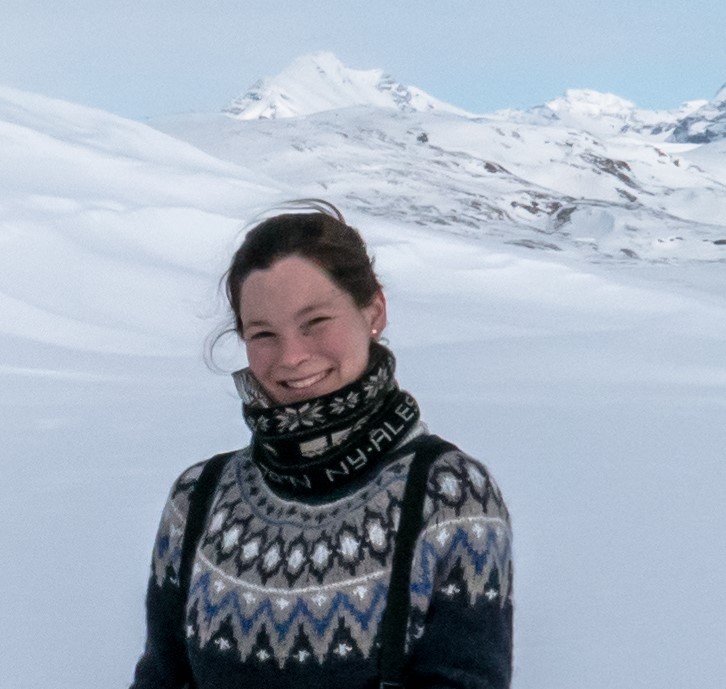Research interests:
While I’m a marine biologist by training, I am interested in the ecology and adaptive processes that shape changing ecosystems in all aquatic environments. My focus lies on the green base of the aquatic foodweb, the microscopic algae that are responsible for the majority of photosynthesis on the planet: the phytoplankton. I am passionate about the question how these tiny plants shape the biogeochemistry and ecology of aquatic systems, and how this may change in a future climate. I like to employ a combination of experimental and field work to investigate the ecophysiology and genetic structure of phytoplankton populations that help them cope with the challenges of their environment.
Having completed my PhD at the Alfred-Wegener-Institute for Polar and Marine Research, my research has focused mostly on Arctic waters, a fascinating and extreme region, which is changing more rapidly than any other place on earth. I then moved on to the Lab for Plankton Ecology and Evolution at the University of Hamburg, where I was awarded a DFG-funded Walter-Benjamin project on heatwave effects on phytoplankton, investigating how such events impact phytoplankton productivity and composition.
Current Project:
At the University of Konstanz, I am now part of the Environmental Genomics Lab and the project YESSS (Yearround EcoSystem Study on Svalbard, https://yesss.science), which is a large consortium effort of different German Institutions, aiming at a better understanding of the Arctic coastal ecosystem throughout all seasons. This includes especially the activity and overwintering strategies of phytoplankton and other organisms during the dark months, which we know still very little about. With a combination of eDNA monitoring and targeted experiments, we are working towards solving some of these riddles, with the aim of predicting climate change impacts on the ecosystem in the coming decades.
Publication List:
Ahme, A., von Jackowski, A., McPherson, R. A., Wolf, K. K. E., Hoppmann, M., Neuhaus, S., John, U. (2023): Winners and losers of Atlantification: The degree of ocean warming affects the structure of Arctic microbial communities. Genes. doi: 10.3390/genes14030623
Assmy, P., Kvernvik, A.C., Hop, H., Hoppe, C.J.M., Chierichi, M., [et al…], Wolf K.K.E., Bailey, A. (2023). Seasonal plankton dynamics in Kongsfjorden during two years of contrasting environmental conditions. Progress in Oceanography. doi: 10.1016/j.pocean.2023.102996
Wolf, K. K. E., Rokitta, S., Hoppe, C., Rost, B. (2022) Pelagic and ice-associated microalgae under elevated light and pCO2: Contrasting physiological strategies in two Arctic diatoms. Limnology and Oceanography. doi: 10.1002/lno.12174
Wolf, K. K. E., Hoppe, C. J. M., Leese, F., Weiss, M., Rost, B., Neuhaus, S., Kühne, N., John, U. (2021) Revealing environmentally driven population dynamics of an Arctic diatom using a novel Microsatellite PoolSeq Barcoding approach. Environmental Microbiology. doi: 10.1111/1462-2920.15424
Feltracco, M., Barbaro, E., Hoppe, C. J., Wolf, K., Spolaor, A., Layton, R., ... & Larose, C. (2021). Airborne bacteria and particulate chemistry capture Phytoplankton bloom dynamics in an Arctic fjord. Atmospheric Environment, 256, 118458.
Beck, Lisa J. et al. (2021) Differing Mechanisms of New Particle Formation at Two Arctic Sites. Geophysical Research Letters. doi: 10.1029/2020GL091334
Wolf, K. K. E., Romanelli, E., Rost, B., John, U., Collins, S., Weigand, H., Hoppe, C. J. M. (2019). Company matters: The presence of other genotypes alters traits and intraspecific selection in an Arctic diatom under climate change. Global Change Biology. doi: 10.1111/gcb.14675
Hoppe, C. J. M., Wolf, K. K. E., Schuback, N., Tortell, P. D., Rost, B. (2018). Compensation of ocean acidification effects in Arctic phytoplankton assemblages. Nature Climate Change. doi: 10.1038/s41558-018-0142-9
Wolf, K. K. E., Hoppe, C. J. M., Rost, B. (2018). Resilience by diversity: Large intraspecific differences in climate change responses of an Arctic diatom. Limnology and Oceanography. doi: 10.1002/lno.10639

